Chris Jonker: “An integration between analogue en digital works best”
An interview by Michel Scheijen for mostlypink.net.
Chris Jonker from Mangrove belongs to nowadays most remarkable and talented keyboard-players.
His dazzling solo’s and atmospheric sounds are important trademarks of Mangrove’s music. Mostlypink has some tech-talk with the young Dutch virtuoso who’s not only a gifted player, but also very keen on keyboard and sound-technology.

When I meet Chris, we’re only a few hours away from his 37th birthday. That means he’s just only 1 year older than me! He’s looking relaxed and wears a shirt with a Mellotron-print. Every keyboard-player should have one…on a shirt, at least. Chris talks about his first years of musical training.
Chris: “When I was 11 years old I started with piano-lessons. A very classical training which I studied until my 19th, but I haven’t got a conservatory background. I got interested in rock-music when I was 17. Especially progressive rock, of course. Because of that I also got interested in keyboards and synthesizers. I made a fast move from acoustic to electronic. But I still adore the classic piano. I’ve got a nice Gotrian Steinweg-piano standing in my living room. After I quit piano-lessons, I also stopped playing from sheet music. I wanted to write my own stuff, and put something personal into music. That’s more satisfying than always playing songs that someone else’s wrote”.
When progressive rock peaked in the 70s Chris was still dozing to his mum’s lullabies. In de 80s a progressive giant like Genesis turned into a mainstream hit-machine filling football-stadiums. But Chris caught up with the past, and found out what progressive rock is all about.
Also he got influenced by a famous musician.
Chris: “In the mid 80s, when I was 13 years old, I listened to Genesis’ ‘Invisible Touch’. It was actually a trigger to listen to more Genesis music. A boy who sat in my class had a cassette of the Genesis ‘Seconds Out’-album. From that time I started digging into Genesis’ music from the past 70s. I discovered their famous, great epics that were much more interesting than their 80s mainstream stuff. Not bad music at all, but it suffered from a less creative and progressive approach. Those great albums like ‘Selling England By The Pound’, ‘Foxtrot’ or Pink Floyd’s ‘Dark Side Of The Moon’ are archetypes of progressive rock’. For me there’s only one keyboard player who stands on top: Tony Banks! He plays very technical without losing the romantic aspect. His ways of chord-changes are amazing, and that’s where he’s famous for”.
As a young lad he got caught by the technical opportunities of the synthesizer. Like all the other players he remembers his first equipment.

Chris: “My first synthesizer was a Kawai K1. Because its sound wasn’t very
good, I used it as a midi-keyboard for a very long time. I also had a Roland
JV30.
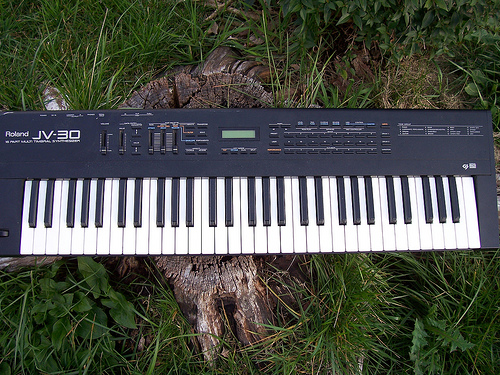 It was standard equipment in those days. The equipment-store where I
bought all those instruments also sold a vintage synthesizer. It was an ARP
Pro/DGX. Almost the same synthesizer where Tony Banks plays many solo’s on. It
cost 300 gulden (130 euro), and I bought it immediately! It wasn’t expensive.
In those days (the ‘90s) nobody wanted a vintage synthesizer. Clear and hard digital
sounds without any organic feel were in fashion. Later it all turned backwards,
because the analogue sound became hip again. The price for a vintage
synthesizer peaked. Most manu-factures are designing analogue equipment
nowadays.
It was standard equipment in those days. The equipment-store where I
bought all those instruments also sold a vintage synthesizer. It was an ARP
Pro/DGX. Almost the same synthesizer where Tony Banks plays many solo’s on. It
cost 300 gulden (130 euro), and I bought it immediately! It wasn’t expensive.
In those days (the ‘90s) nobody wanted a vintage synthesizer. Clear and hard digital
sounds without any organic feel were in fashion. Later it all turned backwards,
because the analogue sound became hip again. The price for a vintage
synthesizer peaked. Most manu-factures are designing analogue equipment
nowadays.
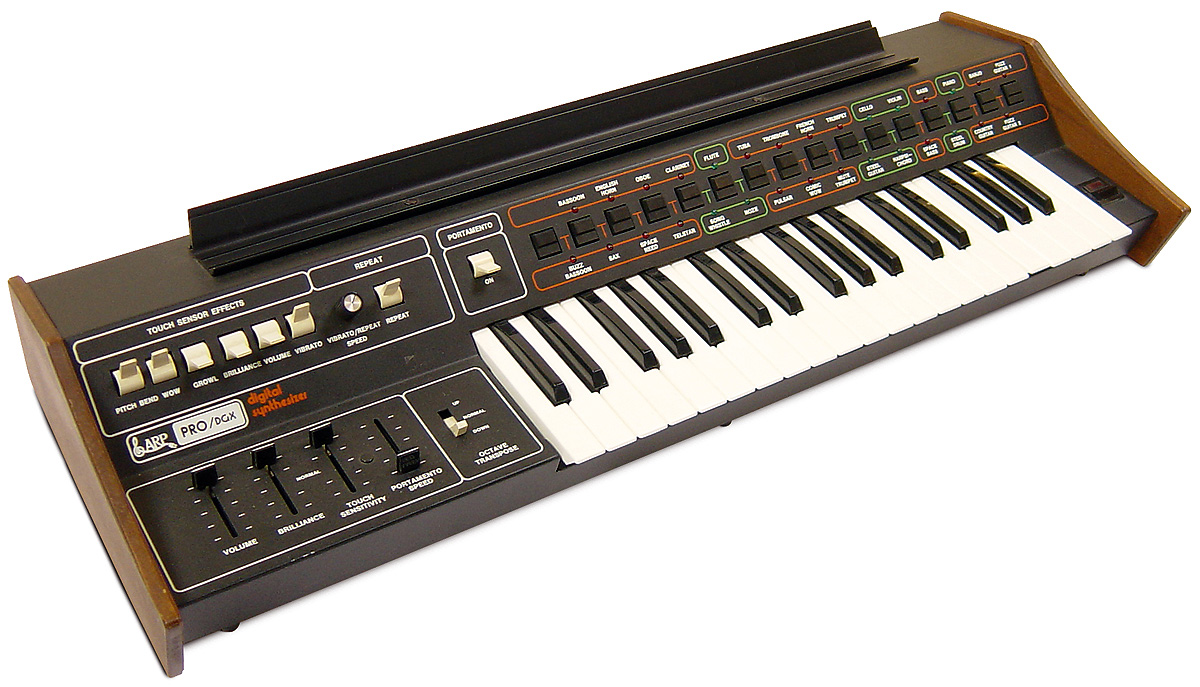
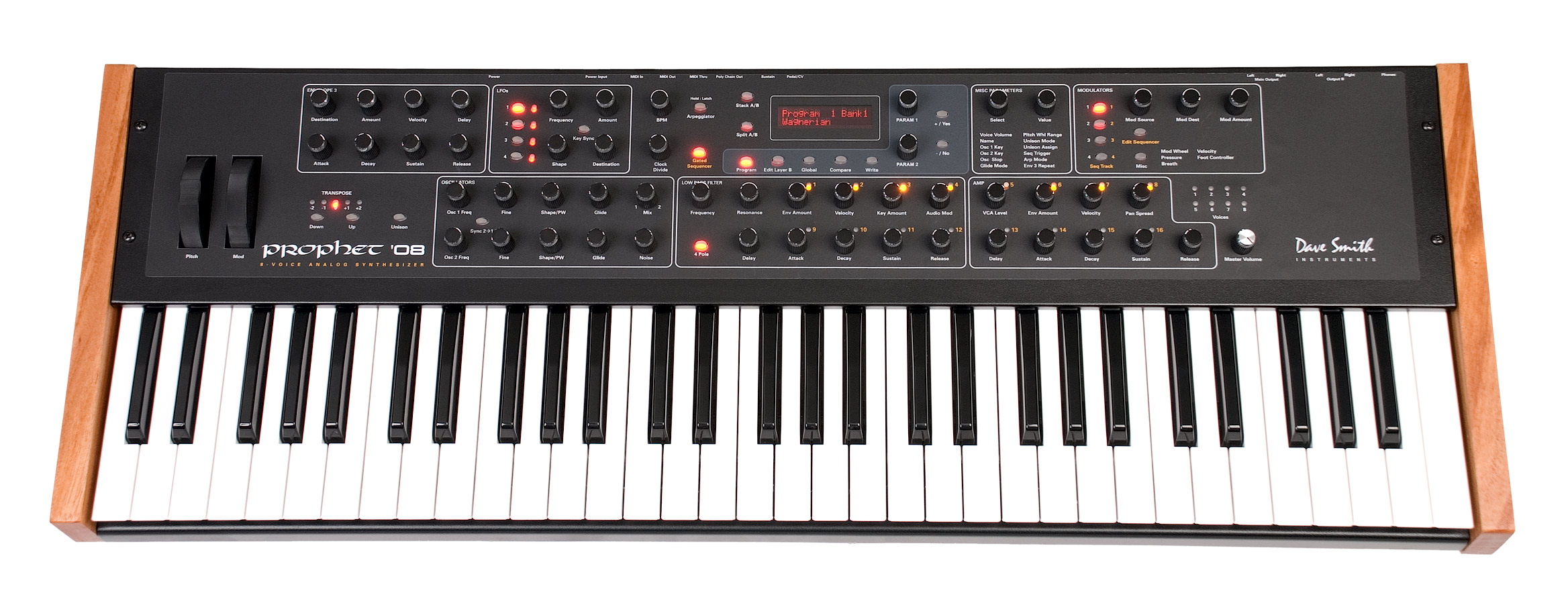
Present there’s a gap between using analogue and digital equipment. Chris has his own vision upon that, and comes up with a very simple solution.
Chris: “I prefer a mixture op both. An integration between analogue and digital works best. I use modern technology because of its usability. Especially the Korg M3 is very handy. Also the North Electro-3 has amazing retro-sounds due to today’s modern technology. It has a phenomenal organ-sound”.
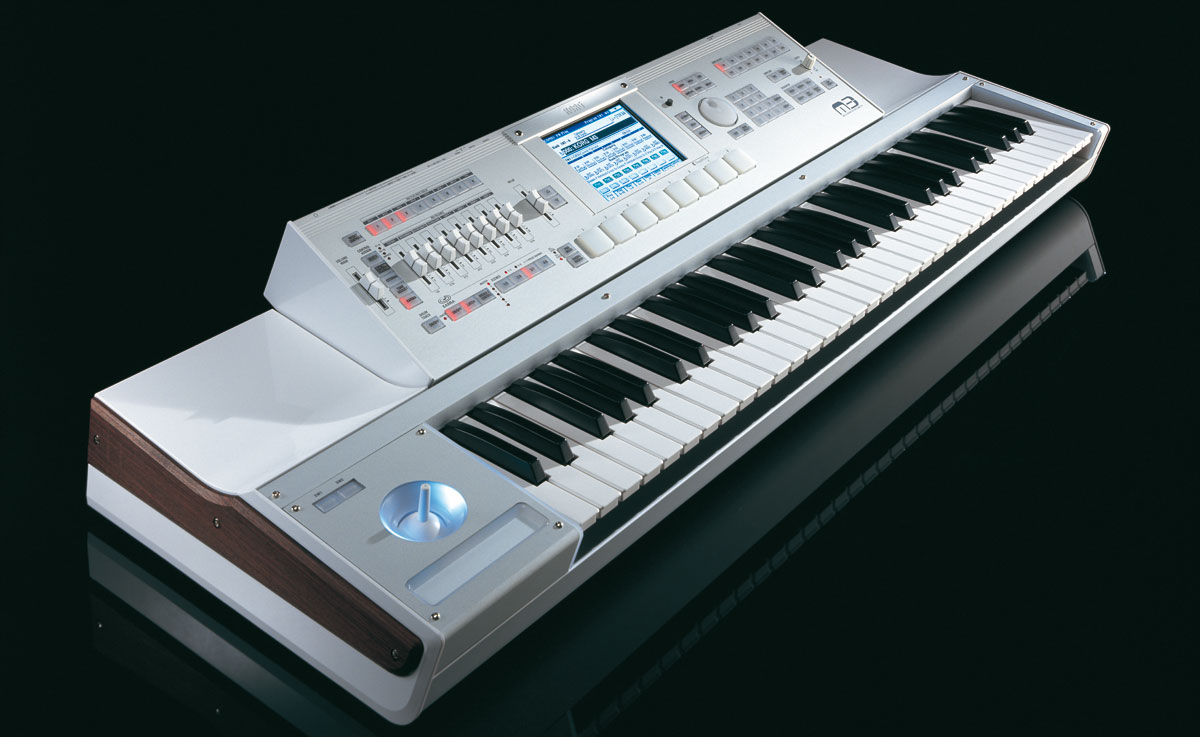 |
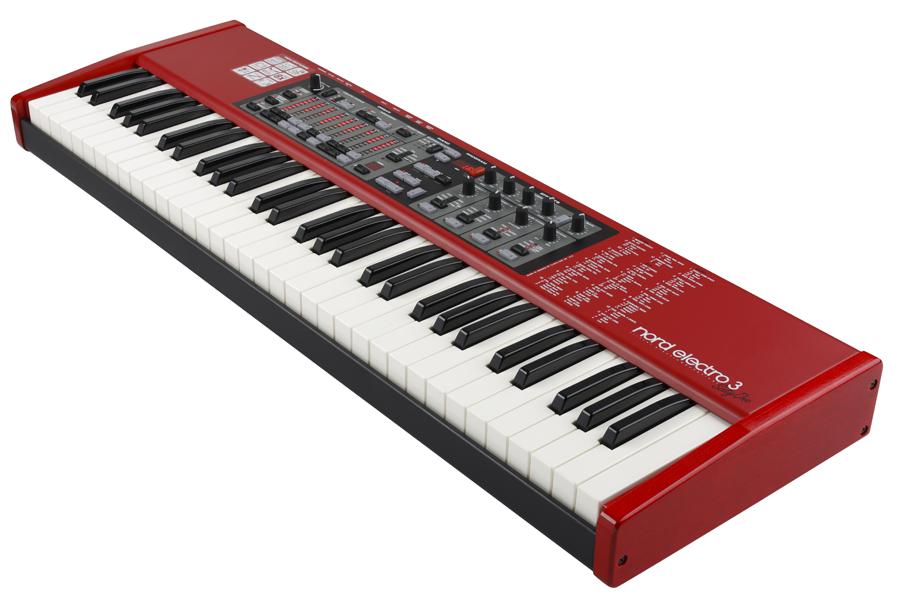 |
Modern equipment is capable of sampling and developing any sound. It really sounds very clean and sober when a player only hits the sample button.
Chris: “There’s nothing wrong with sound-sampling. I’m also doing it. I’m not hardcore analogue, if you know what I mean. There are a lot of keyboard-players who still prefer the equipment of the ‘60s, ‘70s, or ‘80s. I don’t. To me it is important to create organic, crispy, warm, analogue sounds due to modern technology. It’s my input to Mangrove’s music as a keyboard-player. I’m always searching to develop the ultimate sound that fits with the music. It’s like a journey into to centre of sound. A challenge, but I like it!”
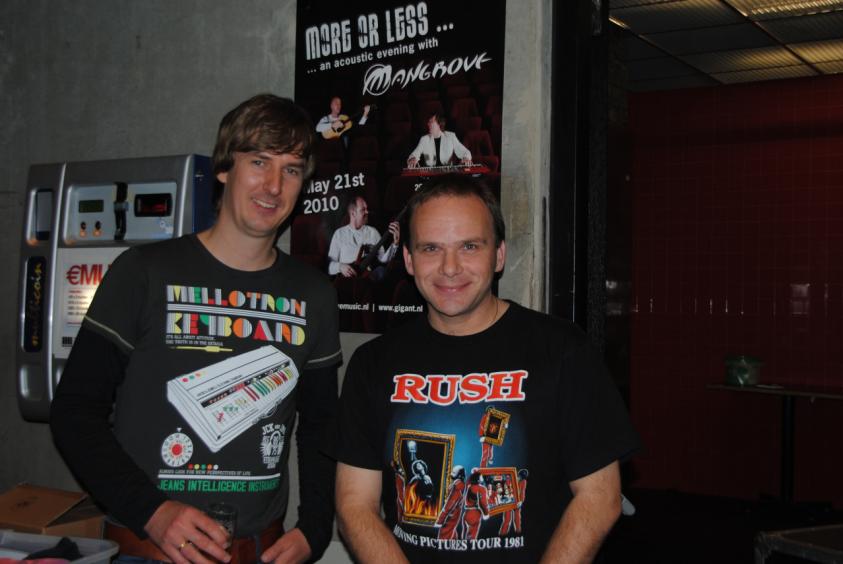
MS: “Thanks for you time and answers, Chris”.
 Symfo-Index.
Symfo-Index.